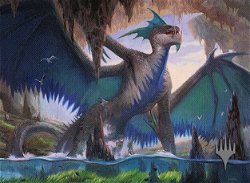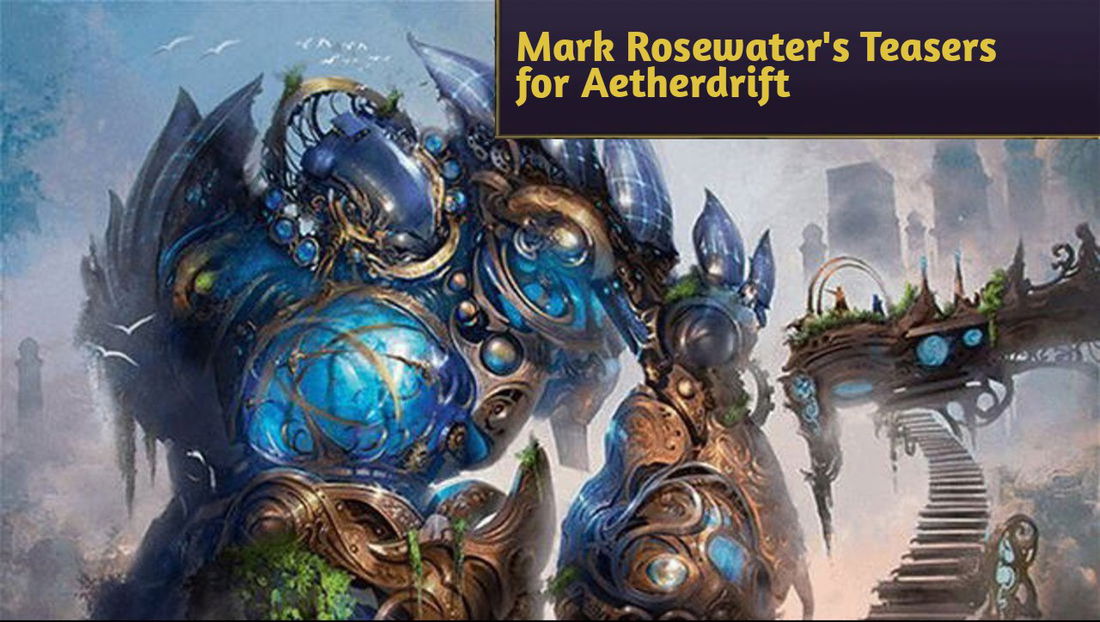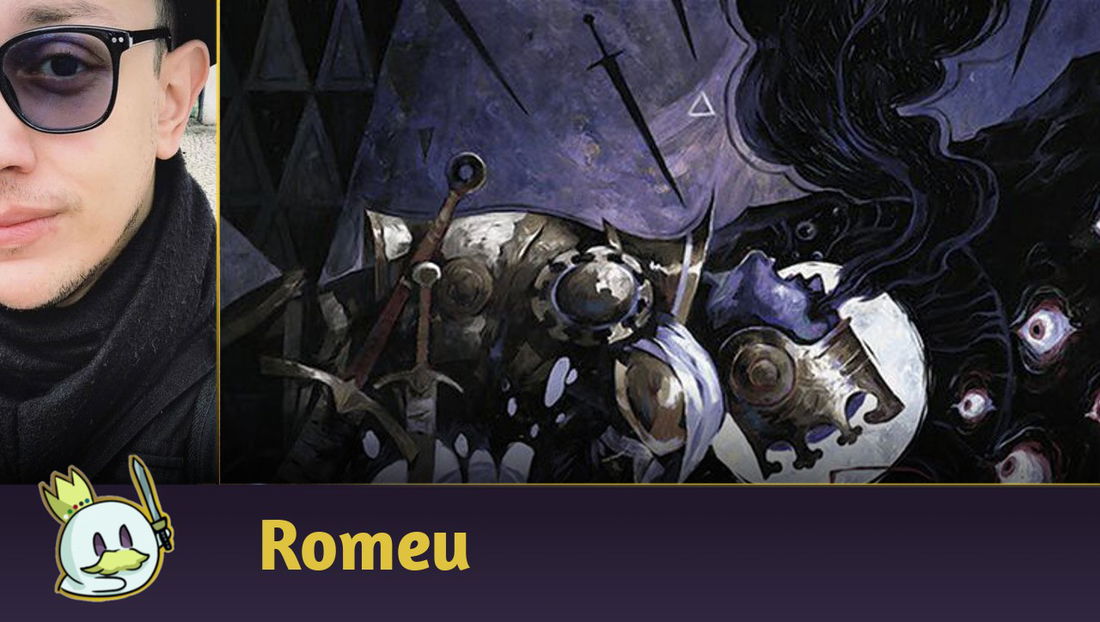Introduction
Greetings, Legacy fans! Let's start this post-ban season with an old friend who struggled a lot when Psychic Frog dominated the format: Temur Delver (also known as RUG or Canadian Threshold).

Among the many Delver iterations that dominated Legacy throughout the years, the Temur versions were the most successful. Since the original version, before Delver of Secrets even existed, with Nimble Mongoose and Werebear (which earned it the name of "Canadian Treshold"), to the most classic version with Tarmogoyf. The last time this archetype stood out was before MH3 was released. Back then, it adopted Questing Druid, and, in some lists, Up the Beanstalk, as card advantage to fill out the shoes left by Expressive Iteration, which was banned.
Ad
However, that all changed when the Frog nation attacked. This card was not only the best card advantage engine around: it made one of the biggest reasons why you'd use red, Lightning Bolt, basically irrelevant. When Psychic Frog finally left the format, many decks tried to become the new aggro tempo deck. We'll discuss one of them today!
Deckbuilding
The list we'll use today was piloted by "C_S_W___" and won Magic Online's Challenge 32. This archetype has a pretty well-established base already, so the only details that change from list to list, namely, the last flexible slots, are up to each player's taste.
Among the creatures included in every list, we have 1 Brazen Borrower, 4 Delver of Secrets, 4 Dragon's Rage Channeler, 3 Murktide Regent, and 2 Questing Druid. Some lists play 2 Borrower and/or 3 Druid, but this is optional.
As for instants, sorceries, and artifacts, we have one of Brainstorm, Ponder, Mishra's Bauble, Force of Will, Daze, and Lightning Bolt. I also found at least one copy of Unholy Heat in the lists I analyzed. You can fill out the rest of the spells with Preordain and Dismember, like the list we'll show you, or Chain Lightning, Force of Negation, Pyroblast, or extra copies of any card already included.
As for lands, most players have agreed to bring 19, but you'll see a few other players trying to make this list work with 18. The consensus is 4 Wasteland, 4 Volcanic Island, 1 Tropical Island, and 1 Island. Other than that, you can complete the list with fetch lands that get you Islands. Some players also like using 1 Thundering Falls.
If you've played at least one Legacy tournament in your life, then there's a good chance you've already faced at least one blue tempo deck. Their premise is simple: play a cheap threat on the board, force your opponent to play defensively with Daze and Wasteland, and eventually finish the game by dealing damage to what's left of their life points directly. This type of deck has been successful for nearly 20 years.
Mulligan
As Temur's mana curve is low, and it includes many cantrips (Brainstorm, Ponder, Mishra's Bauble, and Preordain), it works really well with just a few lands. So, you should consider mulliganing any hand with more than 2 lands. Please note that, when you're trying to end the game, Wasteland is not exactly a land. So, basically, with just a few lands and some action (creatures or a way to draw cards), you can already keep a hand for turn 1. You shouldn't focus on keeping hands that are too reactive, as you're still playing an aggro deck.
Starting hands:

This hand is a bit complicated. It has interaction (Daze, Lightning Bolt, and Brazen Borrower), enough lands for your main game plan, Wasteland to disrupt your opponent, and even one Mishra's Bauble to draw cards. However, it is too reactive, and Bauble alone can't guarantee pressure for you. You could find reasons to keep it, but in most situations I'd rather send it back and find something more proactive. Verdict: Mulligan.
Ad

This hand is pretty straightforward. You have action for turn 1 and, though you won't always be able to transform Delver with it, this will most likely happen naturally (around 39.2% of the time). Daze and Lightning Bolt will be your early game interactions. You could run out of gas with this hand, but, if your opponent manages to deal with the 2 Delvers, this will most likely enable Murktide Regent's Delve. Verdict: Keep.

This is basically the hand this deck wants to see: a bunch of cantrips, one creature, and one interaction. Please note that, as it only has 1 land, you should open with Ponder instead of Delver to draw a second land and not risk running into enemy Wastelands. Verdict: Easy keep.

Not a chance. This hand is terrible. Verdict: Mulligan.
Building the Sideboard
For a deck that has so many cantrips, the sideboard C_S_W___ picked is still quite redundant. In any case, this sideboard includes a wide variety of answers that are even better with the generic answers you already have in your main deck, namely your counterspells.
Grafdigger's Cage deals with Reanimator and Oops, and also Nadu Elves; Price of Progress punishes decks with Ancient Tomb, particularly the ones that play Kozilek's Command. By the way, Consign to Memory is great against colorless decks, but it is also an answer against any triggered abilities you might face, like Storm or Initiative.
Hydroblast and Pyroblast are two of the most effective answers for the colors they target. Force of Negation lets you interact on turn 0 when your opponent starts playing first and you can't let something resolve. Finally, we have Counterbalance, which can destroy any combo decks in your way. It can also destroy decks like Mirrors.
Other cards I saw in this sideboard were Abrade, Faerie Macabre, Cast Into the Fire, Ghost Vacuum, Meltdown, and Surgical Extraction.
Sideboard Guide
Reanimator
Now that they don't have a plan B with the Frog, your only goal is to stop them from reanimating their cards. Your removals are practically harmless here, so you'll swap them with a few cards from your sideboard.
In:

Out:

Blue Aggro (Temur, Grixis, Izzet, and Dimir)
Legacy has so far welcomed these 4 tempo variants, and they're all viable. All 4 matchups play out the same: it will be a war of attrition, considering you'll trade card by card and this archetype can't really get them back. This is one of the reasons this list includes Questing Druid.
Ad
Lists with black are dangerous because of Orcish Bowmasters. As usual, Force of Will isn't fantastic in these matchups.
Against lists without red:
In:

Out:

Against lists with red:
In:

Out:

Eldrazi Aggro
In this matchup, you'll both try to punish each other with Wasteland, but your copies usually stop them from getting 2 mana by hitting Eldrazi Temple, Eye of Ugin, or Ancient Tomb. Your counters might lose value because of Cavern of Souls. In the past, Lightning Bolt was less than ideal, but, now that they play smaller creatures, it is excellent.
Post-side, Consign to Memory is an efficient way to stop any threats they can't protect with their Cavern. In the worst-case scenario, it at least stops Thought-Knot Seer's and Sowing Mycospawn's triggered abilities. Price of Progress can deal a massive amount of damage at once. You should keep your eyes open for Chalice of the Void.
When you're playing first:
In:

Out:

When you're drawing first:
In:

Out:

Red Stompy
They play 2 threats you have to resolve, as they disrupt your game plan considerably: Blood Moon and Chalice of the Void. So, go after your basic Island as soon as possible; doing this is easier when you're playing first. They can play around Daze with Simian Spirit Guide, but it is still important when you're playing first, so don't send them back straight away.
When you're playing first:
In:

Out:

When you're drawing first:
In:

Out:

Nadu Breakfast
2 of their key creatures, Nomads en-Kor and Nadu, Winged Wisdom, are resistant to Lightning Bolt, which is a big problem. In this type of matchup, you need to be as aggressive as possible to make sure they don't have time to find their combo pieces.
In:

Out:

Final Words
Some players say that Legacy is only healthy when Delver is at the top because it is, at least, an old enemy they already know. Though I still object to Nadu's existence as a whole, I can't deny that the last banlist update was very refreshing. Let's see what happens in the next few months. And, meanwhile, flipping Delver on turn 2 is still one of the most efficient tactics around - just like old times!
What did you think of this deck? Tell us your thoughts in our comment section below.
Thank you for reading, and see you next time!









— Kommentare0
Sei der erste der kommentiert